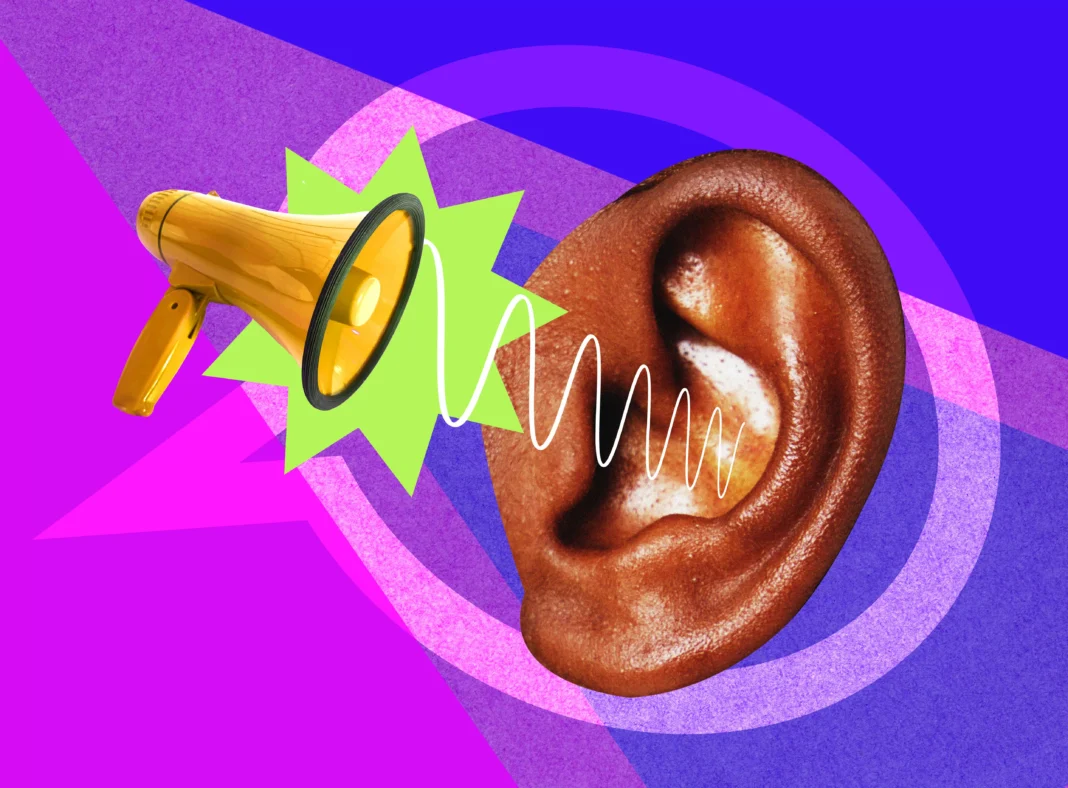Do you go to live sporting events? Attend school concerts? Pay attention.
It’s easy to take your hearing and ear health for granted. But the reality is that many seemingly harmless behaviors can do irreversible damage.
To make matters more complicated, the negative impact of these actions may take years to manifest. Fortunately, there are ways to keep your ears healthy as you age.
HuffPost asked doctors who specialize in this area to share the things they never do in the interest of their ear health. Read on for the behaviors they avoid.
They don’t leave the house without earplugs
“I never leave the house without a pair of earplugs in my purse,” says Dr. Maura Cosetti, director of the Ear Institute of New York Eye and Ear Infirmary of Mount Sinai. “While it may be easier to remember ear protection when going to something like an indoor concert, there are many situations in which we are unexpectedly exposed to loud, and potentially damaging, noise.”
She emphasizes that noise-induced hearing loss is very common and cannot be reversed. That’s why prevention is key to maintaining hearing health and longevity.
“Whether it is attending a concert or a sporting event, operating heavy machinery, or shooting a firearm, I would always recommend the use of hearing protection,” says Dr. Kenny Lin, an ENT-otolaryngologist at Houston Methodist Hospital. “Protecting our ears against loud noise exposures is the most important modifiable factor to protect our hearing against noise-induced hearing loss. I keep concert earplugs in the glove compartment of my car so that they are readily accessible when I find myself at an event that may be uncomfortably loud.”
They don’t fly while congested without taking precautions
“I would never fly if I had a stuffy nose without using a decongestant or special air travel earplugs,” says Dr. Bradley B. Block, an otolaryngologist and host of the “Physician’s Guide to Doctoring” podcast. “Flying with a stuffy nose can make it hard to equalize, or ‘pop,’ the ears, so when the plane is descending, it could be very painful and lead to fluid in the ear or ruptured eardrums.”
Indeed, flying while congested can exacerbate the symptoms of “airplane ear” because parts of the ear aren’t functioning as well. So if you can’t avoid flying, be sure to use a decongestant to improve nasal function. Just be sure to take the correct dosage to keep you protected for the full duration of the flight.
Block also advises purchasing travel-specific earplugs, which have filters that limit the amount of air flowing through your ears to give them more time to adjust to changes in pressure.
They don’t ignore hearing loss
Otolaryngologist Dr. Sreekant Cherukuri said he’d never ignore hearing loss. While sudden changes in hearing might signal another issue, hearing loss that occurs more gradually over time should still be addressed, as well.
“Numerous studies have linked untreated hearing loss to a higher risk of depression, anxiety, social isolation, and an increased risk of falls,” says Cherukuri.
He also points to a Johns Hopkins study that found dementia was 61% more prevalent in those with hearing loss, and that using hearing aids resulted in a 32% lower prevalence of dementia.
They don’t clean their ears
“I would never clean my ears,” says Block. “The ears are self-cleaning. The body has a system for making wax and pushing it out, and wax usually will not accumulate if left alone. The purpose of wax is to protect the ears from water, so removing it will leave the ears vulnerable to water damage.”
Indeed, without adequate protective wax, getting water in your ear can lead to a painful infection called otitis externa, or swimmer’s ear.
“Removing wax can also make the ears dry, flaky, and itchy,” Block says. “Cleaning the ears can also push the wax in, scratch the canal, or damage the eardrum.”
If you’re concerned about excess wax buildup in your ear or sudden hearing loss, consult with a doctor, who can check your ears for any issues and help clear them out. And remember: Never stick a Q-tip in your ear.
Ear specialists urge mindfulness around earbud volume.
They don’t listen to loud music and podcasts through earbuds
“Personal listening devices



